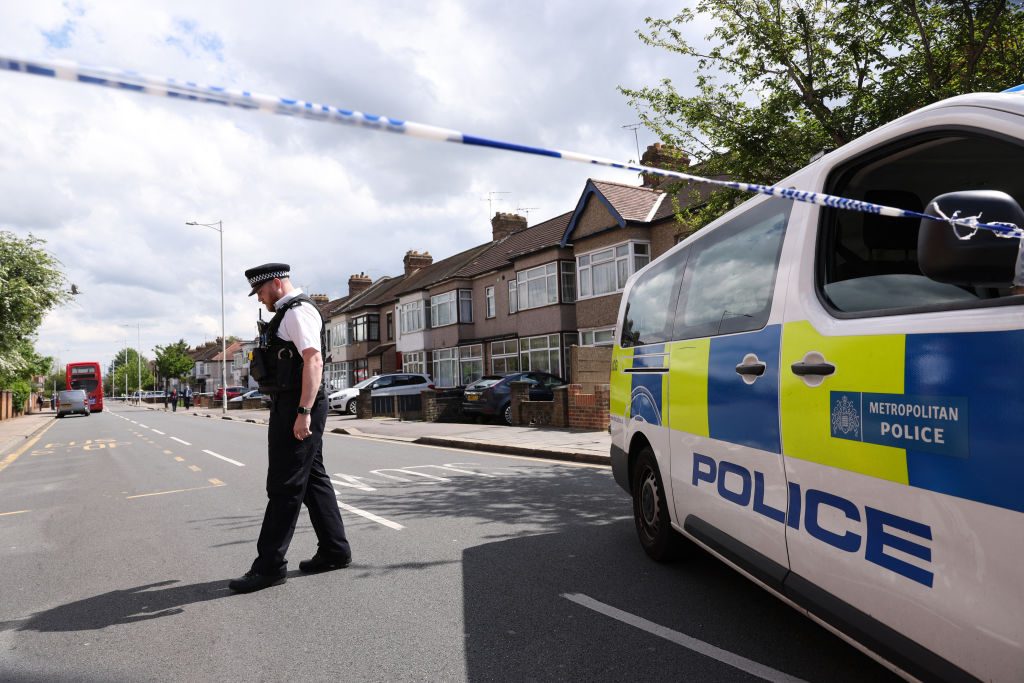A new report by the think tank Policy Exchange, on London’s spiralling street crime, reveals the scale of the crisis facing the Metropolitan Police. Knife crime increased by more than 50% between 2021 and 2024. The Met solved only one in 20 muggings last year. Criminals using knives have partially migrated from London’s deprived boroughs to the city’s retail and nightlife hubs. Yes, the West End features heavily in the statistics, but so do suburban areas such as Kingston upon Thames and Romford.
The cash-strapped Starmer administration appears tone-deaf. While the Government announces early release schemes for prisoners, London’s Labour Mayor ponders decriminalising cannabis and advocates reducing stop and search. Unsurprisingly, Nigel Farage’s Reform makes hay with stories of increasing lawlessness in British towns and cities. As for the Conservatives? The Cameron and May governments’ police “reforms” — including the closure of hundreds of police stations — hatched many of the chickens currently coming home to roost.
For the last two decades, the UK has experimented with a slow-motion version of the radical policies championed in Democrat-controlled cities in the USA. These include an ideological hostility to street policing, a near-obsession with racial politics, and a liberal attitude to penal policy. California experimented with non-custodial sentencing and — like Britain — set a limit on the value of stolen property police were prepared to investigate. By 2022, for example, the US state experienced violent crime 31% higher than the national average. This created an uber-permissive environment for criminals of every stripe. Britain’s experiment, at least, has taken longer to collapse — but collapse it most certainly has.
What, then, is the way forward? One is “zero-tolerance” policing, along with the use of facial recognition technology, tougher sentencing and redeploying deskbound officers into frontline roles. Zero tolerance is a much-maligned and misunderstood term, traditionally seen as beyond the pale by the policing establishment. To operational officers, it simply means “policing” known hotspots and known troublemakers, which sometimes involves slapping handcuffs on suspects and searching them. In other words, stop and search.
The Policy Exchange report also recommends the Independent Office of Police Conduct (IOPC) limits “their involvement to misconduct cases involving chief officers or cases which involve death or serious corruption with other cases dealt with entirely by police forces”, as well as “curtailing” the IOPC’s powers to overrule chief constables. This, in essence, would see the public body stripped of the majority of its casework, returning bread-and-butter complaints to local professional standards units.
IOPC overreach is seen as a serious issue within the police, even by senior officers determined to root out bad apples. They suspect the IOPC is overly political, resenting its ability to second-guess decisions made by chief officers at disciplinary hearings. Recent cases include the Metropolitan Police officers sacked for stopping and searching Olympic athlete Bianca Williams and her partner. They were subsequently reinstated on appeal, after their dismissal was deemed “irrational”. Then there are long-running firearms cases, where officers found not guilty in court are pursued by the IOPC for professional misconduct. Officers view this as a vindictive, “two bites of the cherry” approach, designed to cost them their livelihoods. In short, police are scared of doing their jobs, especially those in confrontational roles.
The crisis itself puts Keir Starmer in a bind. The solution to soaring street crime requires increases to both police funding and prison capacity. This is before accepting politically sensitive changes to stop-and-search policy. The question, then, is simple: is Labour prepared to tack Rightwards on law and order? One suspects the Prime Minister’s advisers would prefer to do so, but it is unlikely that Starmer’s increasingly restive backbenchers will follow suit. In the meantime, the crime rate will only increase, adding to the growing sense of national decline currently pervading the UK.










Join the discussion
Join like minded readers that support our journalism by becoming a paid subscriber
To join the discussion in the comments, become a paid subscriber.
Join like minded readers that support our journalism, read unlimited articles and enjoy other subscriber-only benefits.
Subscribe